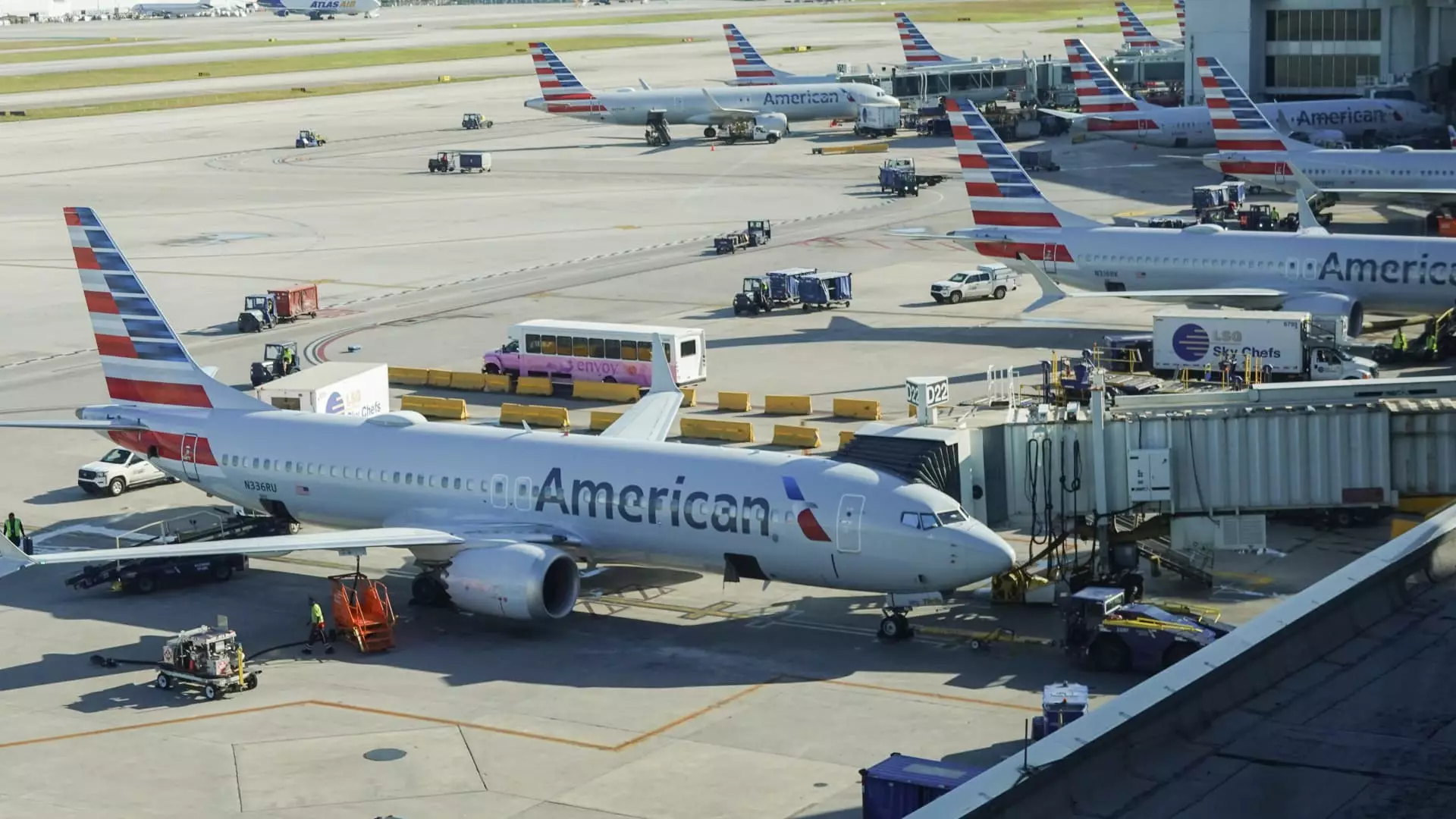Early Tuesday morning, American Airlines faced a significant operational hiccup that brought its U.S. flights to a standstill. The concern stemmed from a technical failure related to a vital vendor-provided platform, which manages essential data for flight operations, including critical flight measurements such as weight and balance. As travelers sought to embark on what is anticipated to be one of the busiest travel periods of the year, this unanticipated disruption prompted chaos at airports, introducing delays and uncertainty.
Fortunately, the ground stop was lifted by 7:55 a.m. ET, resolving the immediate crisis in under an hour. The airline communicated swiftly with passengers, issuing an apology for the turmoil caused by the outage. Ground stops aren’t entirely uncommon, as airlines frequently initiate them in response to storms or other emergency situations to prevent overloading airports, particularly when adverse conditions hamper operations. Nonetheless, the grounding of flights, especially when travelers are packed with holiday plans, brings anxiety and frustration.
American Airlines’ recent incident is emblematic of a broader trend within the airline industry, where operational systems have come under increasing scrutiny. Historically, airlines have grappled with flights’ interconnectedness to a variety of technical platforms; lapses can cascade into larger operational failures, as seen in previous high-profile disruptions. Comparatively, events like Southwest Airlines’ chaotic experience during the 2022 holiday season and Delta’s recovery struggles following a system outage illustrate how technological dependencies can lead to widespread service interruptions.
As holiday travel escalates, the pressure on airlines to manage both scheduling and operational integrity intensifies. In this instance, American Airlines was operating a reduced schedule on Christmas Eve, indicating a strategic effort to manage demand while ensuring service efficiency. Recognizing the complexities inherent in air travel during peak periods, airlines must develop more resilient systems to avoid disruptions that affect the travel experience of thousands.
While American Airlines managed to resolve the situation without any cancellations, the episode underscores a persistent issue in the aviation sector—technology reliability is of utmost importance in maintaining operational fluidity. As travel trends indicate climbing demand, airlines must prioritize enhancements to their technological frameworks to withstand unforeseen challenges. Continuous improvements in systems and contingency planning are essential for fostering trust and ensuring smooth travel processes, particularly during critical times like the holiday season. This incident stands as a captured moment in an ongoing dialogue about the future of air travel and the infrastructure that supports it.

